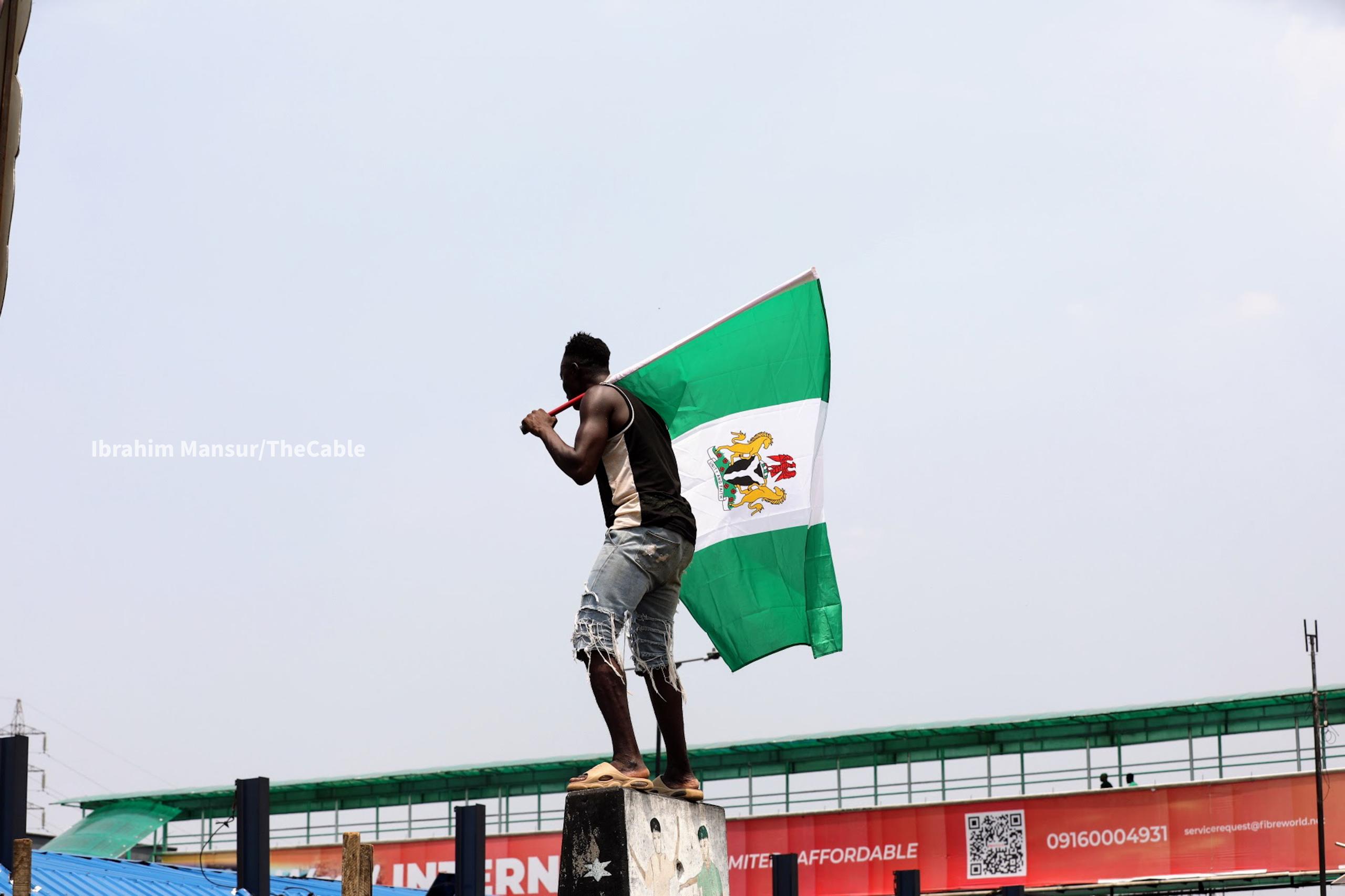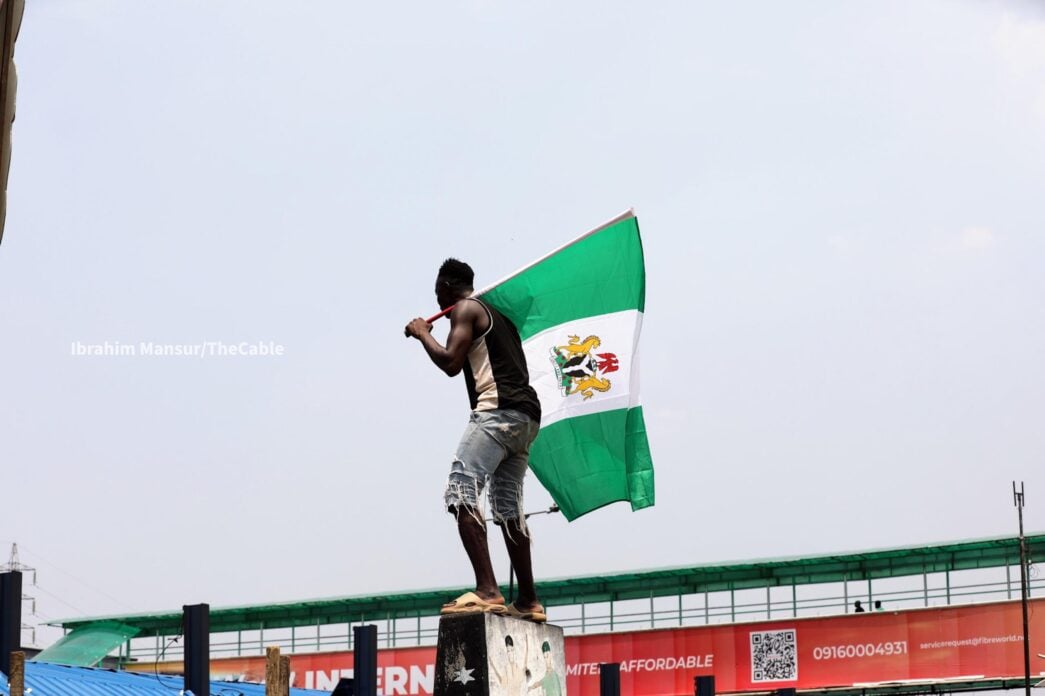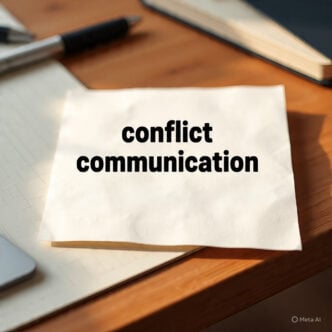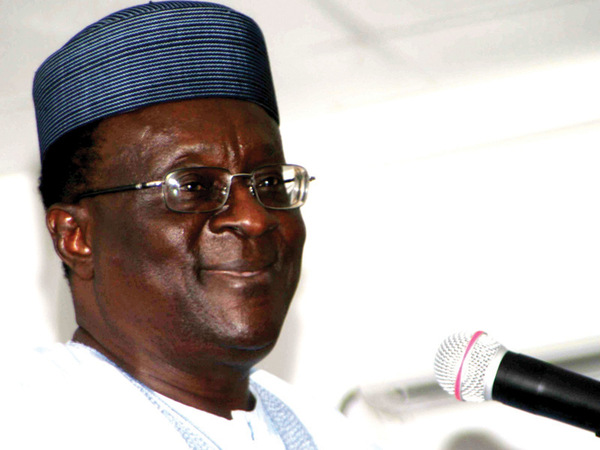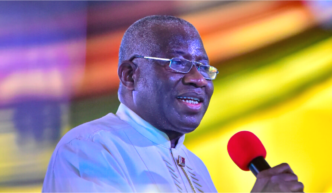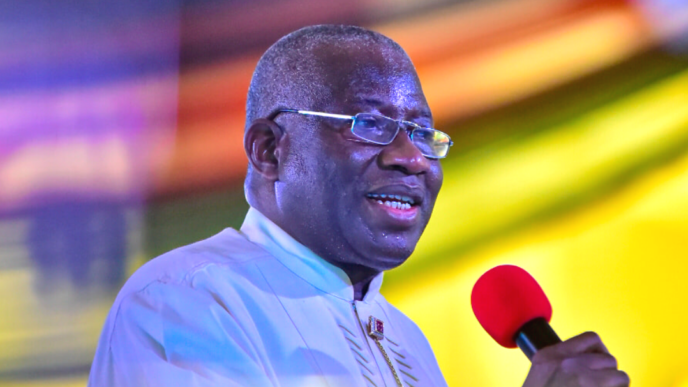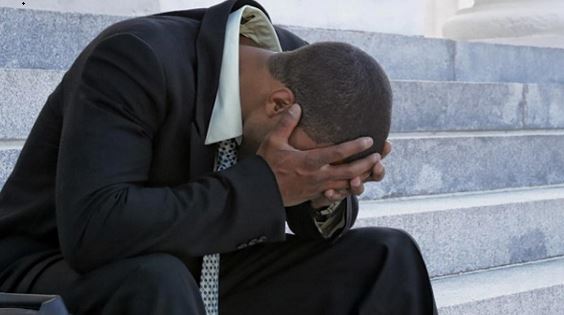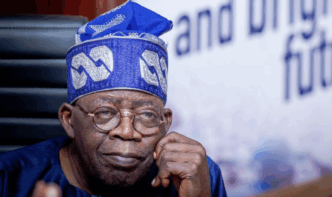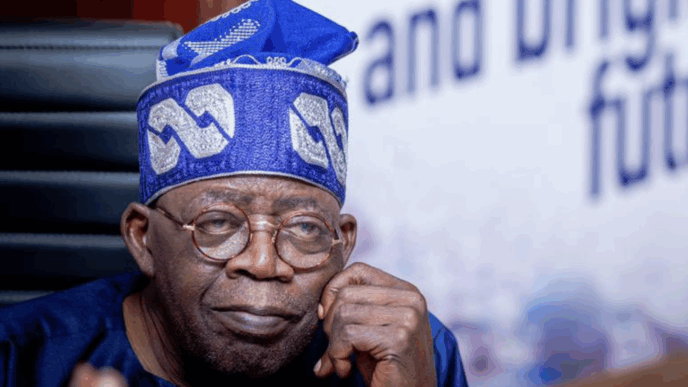Nigeria, the greatest Black country in the world, has been given different monikers by Nigerians and non-Nigerians alike. Which one is given, when, and why depends on the emotion of the speaker at any given time. Some call it “The Mistake of 1914.” While others call it “The Lord Lugard Experiment.” To some, it is a mere “geographical expression.” Those who view it in terms of its socio-economic potential refer to it as “The Giant of Africa” because it is a country blessed with a rich tapestry of cultures, languages, and ethnic groups; mineral deposits; human resources; the list goes on and on.
Those who think the amalgamation of the northern and southern protectorates in 1914 by Sir Frederick Lugard, see it as a contraption of peoples with different cultures, norms, and values, who may never have a common ground on any issue of national importance or hold the same worldview. Meanwhile, those who see it as what they are stuck with even though they prefer another geopolitical arrangement believe it is a mere geographical expression—there is Nigeria, but there are no Nigerians. That is what it means.
With over 250 distinct ethnic groups and more than 500 languages, Nigeria stands as one of the most ethnically diverse nations in the world. The difference in the elements of culture among the various groups is a delight to behold, even though some Nigerians have, so far, failed to appreciate that beautiful side of our nationhood.
Where do we start from? Is it the rich cuisines, festivals, or the languages that are laden with colourful proverbs and idioms? Are we talking about the traditional costumes or the lingos rendered in trending music that have traveled across national boundaries? The list is inexhaustible. A potpourri of these forms that robust phenomenon referred to as the “Naija Culture,” which manifests in the famed “Naija Spirit,” reeking of resilience, passion, and determination to succeed.
Advertisement
Statistics say, “Nigeria is the sixth most populous nation in the world—one out of every five Black people in the world is a Nigerian,” and “one out of every 34.5 human beings on the planet earth is a Nigerian.” It is a country of hundreds (about 250) of ethnic groups.
Many nationals of other countries have often questioned why such diversity exists within the boundaries of a single nation. But when viewed through the lens of providence, it becomes clearer that God’s bringing together of the various ethnic groups to constitute the Nigerian nation is not accidental but by a divine arrangement. Not a mistake by any agent of the British imperial power. It is for a divine purpose. Imagine if Nigeria, with its size and everything associated with it, were in Europe; you can only imagine the number of sovereign nations that would come out of it. Some local government areas in Niger are way bigger than some countries in Europe. There is no way we won’t be talking of close to 250 countries. Come to think of it, if there is an endeavour that necessitates traveling through the length and breadth of Nigeria, it means you will have to deal with about 250 customs and visa applications. But God in His omniscience has decided to eliminate those barriers by making us a sovereign nation, which now allows us to travel from Owerri to Sokoto, Lagos to Enugu, Maiduguri to Port Harcourt, Katsina to Calabar, Abakaliki to Ilorin, Yola to Abeokuta, Birnin Kebbi to Umuahia, Abuja to Lokoja to Kaduna, Ilorin to Jalingo, and Benin City to Kano without filling out any form. If, despite all these, you are yet to see our being together as a nation in a positive light, you might just be living a wasted life as a Nigerian.
Unity in Diversity as a Strength.
Advertisement
Nations, their formation, and their boundaries are not accidents, but they are divinely orchestrated. The Berlin Conference of 1885 notwithstanding, no nation chooses where it is situated. And as the inhabitants begin to develop socio-political consciousness, they find a “raison d’être”, that seeks to bind them together, moving them closer to one another like a centripetal force does. Some may be socio-cultural, economic, trading, political, or military. There may be differences in their cultures, but the raison d’être serves as the fulcrum of their intergroup relations that culminate in forming a united and cohesive entity. In such a situation, every group coming on board would come with whatever comparative advantage it has as its contribution to the commonwealth of the geopolitical entity. Nigeria’s ethnic diversity, therefore, is part of a greater divine blueprint—a testament to the beauty and strength found in unity amidst diversity. To this end, the Igbohos, the Ekpas, and the Shekaus of this world need to know that if God wanted them to live as citizens of the Yoruba Nation, the Republic of Biafra, or the Islamic Caliphate, respectively, He would not have allowed the so-called “Lugard experiment of 1914” to survive up to this moment. The fact that Nigeria survived a brutal civil war in 1967 is an eloquent testimony to that belief (fact, if you prefer that). In 1994, Rwanda had a more brutal civil war that had rightly been tagged “genocide,” but they came out of it stronger and relatively more prosperous. So why won’t Nigeria put its own behind and march on to greatness as a nation?
Each ethnic group in Nigeria, from the Hausa-Fulani in the north, the Yoruba in the southwest, the Igbo in the southeast, and the Ijaw/Urhobo/Itshekiri in the south-south to the countless minority groups in the middle belt and southern regions, contributes something unique to the nation’s identity. They bring different things that are complementary to the table. The languages, cultures, traditions, ethos, and values are not meant to divide the country but to enrich one another, forming a mosaic that reflects the creativity and intention of the Grand Architect of the universe, who constructed the nation in His own image.
Lessons in Tolerance and Cooperation
Bringing together people of diverse backgrounds naturally requires learning to live together in harmony. That is done by understanding our differences and respecting them so that bitter hostility would not take the place of amity. Our diversity teaches vital lessons in tolerance, understanding, and mutual respect towards one another. These are not just social ideals but socio-political necessities that are deeply rooted in love and compassion. These are values emphasized in the messages that the likes of MAMSER, NOA, and others of yesteryear have, over the years, been trying to pass across to millions of Nigerians, home and abroad.
Advertisement
Nigeria’s challenges with ethnic tensions and conflicts are not signs of a failed divine plan, but rather, opportunities for the nation to rise to the occasion and demonstrate that people from different backgrounds have overcome primordial sentiments, can coexist, thrive, and build together a socioeconomically viable nation. It is a test of faith, character, and willingness to embrace the “other” as a brother or sister. A peaceful (and heterogeneous) society is not one in which there’s no conflict, but one that has developed an in-built mechanism for conflict resolution, rooted in social justice and equity. This is because groups of humans will always have conflicts, so long as they interact. That is part of what characterizes social interactions at any level. Otherwise, how would one explain the civil war that has ravaged Somalia for about three decades now and still counting? Somalia is one of the most homogeneous countries in the world, yet they’ve found it very difficult to live together in peace and harmony. In a bid to keep Nigeria divided, despite the age-old saying that “united we stand, divided we fall,” somebody in faraway Finland on Monday, a character called Simon Ekpa, just secured himself a six-year vacation behind bars.
A Beacon to the World
We’re in an era in which the world has become a “global village,” where division and polarization are increasingly becoming blurred. This is what French sociologist Émile Durkheim described as organic solidarity. In this arrangement, relationships between members of the society are not by blood relation, shared beliefs, or primordial sentiments, but by interdependence in the quest for task accomplishment with a view to meeting daily needs. Organic solidarity is rooted in interdependence. This is because individuals perform different and specialized roles; the society is held together not by sameness but by the necessity of cooperation. Nigeria’s model of coexistence has the potential to serve as a point of reference to other nations, if allowed to thrive, by those who have remained helpless under the grip of tribalism. Nigeria can be the “Switzerland” of Africa, given the number of ethno-religious groups that form the union. God’s purpose in assembling such a multitude of ethnic groups under one flag is to showcase that peace and progress are possible, even in the midst of significant differences.
Whoever doesn’t believe, or says it’s not possible, should please help me explain the reason why there have been crises in countries like Somalia or South Sudan, despite their homogeneity (in terms of race, ethnicity, and religion). Why do we have peace in ethnically diverse countries like Switzerland, Belgium, Canada, the UK, and the USA, among others, if ethno-religious factors are the reasons we think “Project Nigeria” is having the tumult we currently experience?
Advertisement
It is no coincidence that Nigeria, despite its internal struggles, continues to produce influential voices in global events like music, literature, sports, business, technology, and faith. These successes come from drawing strength from its collective diversity, without us realizing it. Each group, with its unique genetic traits and worldview, contributes to Nigeria’s vibrancy and resilience.
Do I need to remind you that a leader of the British Conservative Party Kemi Badenoch, of Nigerian descent? After coming out to renounce her Nigerian heritage as though our corporate existence depends on it (her identifying with Nigeria), reading from the “book of lamentation,” she recently said she “suffers racial abuse from some white supremacists.” This was after having never missed an opportunity to bash Nigeria at any forum, as if the country is an issue—a factor—in the UK election. These are the same people she tried (and is still trying) so hard to impress and seeks validation from by running down her “country of birth,” where she spent the first 16 years of her earthly existence. She says things about Nigeria that are, at best, half-truths. Although she vehemently denies her Nigerian heritage, she is still in love with her first name, “Kemi”. Let somebody shout “Hallelujah” or “Allahu Akbar!” She might try to Anglicise it in the coming days, though, by changing the spelling to “Chemmy,” but for now, she’s still an “un-Nigerian Kemi”. The point I am making here is that she is meeting her comeuppance, following her frantic but futile attempts at running down a country that first gave her and her parents (grand and great) a nationality before migration exposed her to the “British Eldorado,” “where there is no social vice—crime, violent or otherwise.” If you like, call me petty and superstitious about my Nigerianness; I don’t give a hoot.
Advertisement
Embracing the Divine Purpose
To fully realise its potential, therefore, Nigerians must embrace the fact that their nation’s diversity is a divine intent and stop stirring the hornets nest, looking for reasons to justify their agitation for dismemberment. Rather than seeing ethnic differences as obstacles, they should be seeing them as nature’s gifts from God, meant to complement one another to the benefit of all. True nation-building in a heterogeneous society like ours requires moving beyond the cocoon of ethnic loyalty to the realm of “national unity,” guided by principles of justice, equity, and love for one another.
Advertisement
By and large, God’s bringing together of various ethnic groups to form the Nigerian nation is not a mistake. It is a purposeful act designed to reveal the beauty of unity, the strength in diversity, and the potential for greatness when people come together under a shared vision of shared prosperity. As Nigerians recognize and walk in this divine purpose, they can overcome division and fulfill their destiny as a beacon of hope and unity to the rest of the world.
There is a caveat for the political elite, though. They must not take for granted the notion that Project Nigeria is a divine one that is indestructible and therefore continue with the recklessness of the past, by which they abandoned the yearnings and aspirations of the common man, thinking they can continue to build their convenience around the inconvenience of the greater majority. I dare say it would boomerang someday. When the people continue to suffer in the face of abundant national wealth, a time will come when the essence of the ruling class will be called into question by the owners of the popular sovereignty—the people of Nigeria. It is, therefore, high time the political class retraced their steps and became more responsive (to the needs of the masses) and responsible (for the welfare of the citizenry). If they continue to act in ways that extinguish the faith of the citizens in everything Nigeria represents to them, then they must know that no amount of armoured personnel carriers rolled onto the streets can eliminate the we-versus-them dichotomy from the collective psyche of those who were forcibly integrated into the 1914 experiment. This is at the risk of sounding like I’m approbating and reprobating at the same time.
Advertisement
Abubakar writes from Ilorin, Kwara State. He can be reached via 08051388285 or [email protected].
Views expressed by contributors are strictly personal and not of TheCable.

